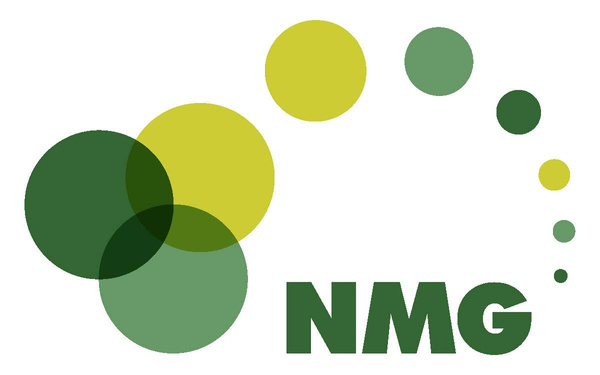
Nov 13-14, 2023
ANNual Fall Meeting
The Hospital for Sick Children
Toronto, ON

Monday Nov 13
Registration outside the 2nd Floor Gallery
8:00 – 8:50 am
Welcome and Introduction
8:50 – 9:00 am
Applications of digital PCR in clinical microbiology - Presented by Roche
9:00 – 9:30 am
Speaker: Dr. Caroline Vincent
Description: This presentation will provide an overview of digital PCR, including principles of the technology, differences with real-time PCR and key applications in clinical microbiology.
At the end of this session, participants will be able to:
- Describe the basic principle and existing technologies for digital PCR
- Explain the differences between real-time PCR and digital PCR technologies
- Summarize possible applications of digital PCR in clinical microbiology
Post-transplant monitoring for EBV: Comparing whole blood with plasma - Presented by Roche
9:30 – 10:00 am
Speaker: Dr. Amit Parulekar
Description: This presentation will provide an overview of EBV viral load monitoring in transplant patients, with a focus on the use of whole blood versus plasma. We will review international guideline recommendations for EBV testing and examine the correlation between EBV DNAemia and post-transplant lymphoproliferative disease with whole blood and plasma.
At the end of this session, participants will be able to:
- Describe the clinical utility and challenges related to EBV monitoring in transplant recipients
- Apply international guideline recommendations for EBV testing post-transplant
- Contrast the correlation of EBV DNAemia from plasma and whole blood with clinical outcomes
Infectious Diarrhea: A Syndromic Approach to Diagnosis - Presented by Seegene Canada
10:00 – 10:30 am
Speaker: Désirée Quint
Description: This session will provide an overview of the syndromic approach the Molecular Diagnostic Laboratory at Victoria General Hospital has implemented in the diagnosis of infectious diarrhea. More specifically, the use of Seegene’s multiplex Gastrointestinal Panel Assays (GI-Viral, GI-Bacteria (I), GI-Bacteria (II) and GI-Parasite) with the automated extraction and PCR setup system, STARlet IVD. This presentation will discuss the pros and cons of the syndromic approach using Seegene’s platform as well as future developments in the Molecular Diagnostic Lab.
At the end of this session, participants will be able to:
- Summarize the benefits of the syndromic approach in diagnosing infectious diarrhea
- Describe the advantages and disadvantages of Seegene’s platform for diagnosing gastrointestinal illness
Networking Break - 30 mins
10:30 - 11:00 am
Emerging and Evolving Respiratory Viruses: Test Design Matters! - Presented by Cepheid
11:00 - 11:30 am
Speaker: Dr. Michael J. Loeffelholz
Description: In the post-COVID-19 pandemic era, with co-circulation of SARS-CoV-2, influenza viruses and RSV, it's more important than ever to have the ability to accurately detect and differentiate respiratory virus infections. Recent genetic drift in the influenza A matrix gene has been shown to impact the accuracy of some molecular tests, demonstrating the importance of incorporating multiple gene targets in the test design to mitigate the impact of genetic drift. An additional feature is broad strain coverage allowing detection of human as well as avian-derived influenza A viruses which pose a threat to public health.
At the end of this session, participants will be able to:
- Participants will be able to describe why incorporating multiple gene targets is critical to the accurate detection of respiratory viruses, including SARS-CoV-2, influenza and RSV.
Use of the Panther Fusion to Reduce Turnaround times for Marginalized Populations Session Presented by Hologic
11:30 – 12:00 pm
Speaker: Jodi Gilchrist
Description: Implementation of the Panther Fusion to reduce diagnostic turnaround times for sexually transmitted infections in equity-seeking populations will be discussed.
Congenital CMV Infection, Diagnosis and Sample to Answer Molecular Testing - Presented by DiaSorin Canada Inc
12:00 – 12:30 pm
Speaker: Dr. Michelle Tabb
Description: Congenital CMV is the most frequent infectious cause of neonatal malformation in developed nations. It is more prevalent than other neonatal conditions such as spina bifida and Down syndrome, but is under-recognized and largely unknown among pregnant women. Congenital CMV causes hearing loss, neurological impairment and even death, and timely diagnosis and treatment can minimize severity and reduce disease burden. This presentation will discuss congenital CMV infection as well as current clinical guidelines and laboratory methods used to diagnose congenital CMV. Experiences with implementation of Simplexa Congenital CMV Direct for testing newborn saliva and urine specimens will also be discussed.
At the end of this session, participants will be able to:
- Understand Cytomegalovirus (CMV) and the epidemiology of congenital CMV infections
- Understand methods used for diagnosis and implications of congenital CMV infection
- Discuss targeted, expanded targeted and universal screening options for diagnosing congenital CMV infection
Lunch Break - 90 mins
12:30 - 2:00 pm
Molecular Diagnostics of Emerging Infections - Presented by Altona
2:00 - 2:30 pm
Speaker: Dr. Markus Hess
Description: The presentation will be about newly emerging infections. The importance of an early and reliable diagnosis to control these infections and what it needs to develop suitable assays. And we will present some projects Altona is performing with reference institutes and NGOs in the field of emerging infections.
Closing the Diagnostic Gap in Febrile Returned Travelers - Presented by Seegene Canada
2:30 - 3:00 pm
Speaker: Dr. Andrea Boggild
Description: In this session, we will explore the prevalence, public health importance, and individual patient-level impact of fever in the post-travel setting. The existence of and mechanisms underpinning the substantial diagnostic gap in the febrile returned traveler population will be elucidated, and solutions proposed for how to enhance our understanding of this important clinical syndrome.
At the end of this session, participants will be able to:
- recognize fever as a major clinical syndrome with which travelers return.
- appreciate how epidemiology and travel and migration characteristics inform the diagnostic tests best used to interrogate post-travel fever syndromes.
Networking Break - 30 mins
3:00 – 3:30 pm
Continuing the Paradigm Shift to Automating Microbiology Session Presented by Seegene Canada
3:30 - 4:00 pm
Speaker: Dr. Susan Poutanen
Description: This session will provide an overview of the value of automation in microbiology highlighting the recent move to automating Seegene's STARlet with its all-in-one system STARlet-AIOS and summarizing its impact on hands-on-time, workload efficiency, and turn-around-time.
At the end of this session, participants will be able to:
- Summarize the benefits of automation in microbiology
- Describe the impact of the STARlet-AIOS on hands-on-time, workload efficiency, and turn-around-time
Faculty Panel Discussion
4:00 - 4:30 pm
Tuesday Nov 14
Registration outside the 2nd Floor Gallery
8:00 – 9:00 am
Parasitology in the 21st century: are we wrong for doing the right thing?
9:00 – 10:00 am
Speaker: Dr. Kinga Kowalweska Growchowska
Description: The session will address the challenges facing the world of parasitology: globalization, human/animal migration, climate change, shrinking workforce, and discuss potential solutions and their evolution over the years. It will encompass:
- The past: diagnostic technologies and their evolution
- The present: a snapshot of parasitology diagnostics in Canada
- The future: new approaches to testing - are we doing the right thing?
- The Brave New World: looking at solutions for sustainable future in diagnostic/reference parasitology
At the end of this session, participants will be able to:
- Understand recent socioeconomic and environmental changes affecting Canada and north America and how they relate to laboratory diagnosis
- Describe evolution of diagnostic tools in parasitology over recent years
- Critically evaluate feasibility and appropriateness of current and potential approaches to parasitology diagnostics
16s/MALDI proficiency data
10:00 – 10:30 am
Speaker: Dr. Jennifer Tanner
Description: The 16S/MALDI-TOF Bacterial Identification Proficiency Panel is distributed nationally on a yearly basis to public health clients within hospitals, provincial laboratories, and the National Microbiology Laboratory. An overview of the 2023 panel process will be presented, with the latest program developments highlighted.
At the end of this session, participants will be able to:
- Understand how the 16S/MALDI-TOF Bacterial Identification proficiency panel program is conducted.
- Apply feedback via the panel participants survey.
- Access the National Microbiology Laboratory MALDI-TOF Spectral Libraries (NMSL) publicly available on the NML Guide to Services
Networking Break - 30 mins
10:30 – 11:00 am
Pneumocystis Diagnostics: A Canadian Conundrum Requiring Fresh Air
11:00 – 12:30 pm
Speakers: Dr. Aaron Campigotto and Dr. Marthe Charles
Description: There is no clear answer on Pneumocystis testing in Canada a disease which has a mortality of 27 to 65%. Molecular testing is troublesome due to detecting carriage and not just disease, while direct detection will miss disease in particular in non-HIV patients. Prior to the session a survey led by Dr. Yan Chen (Unity Health Toronto) was administered to NMG members on Pneumocystis diagnostics. During the session, medical microbiologists Dr. Marthe Charles (Vancouver Coastal Health) and Dr. Aaron Campigotto (SickKids) will present their local testing strategies and share in an extended discussion including audience and survey responses.
Lunch Break - 45 mins
12:30 – 1:15 pm
Annual General Meeting - 45 mins
1:15 - 2:00 pm
Tell Us About Your Laboratory
2:00 – 2:45 pm
Speaker: Corrie Belanger
Institution: Vancouver General Hospital
Abstract Title: Detection of bacterial pathogens directly from synovial fluid using digital PCR – a proof of concept study
Speaker: Nick Gauthier
Institution: University of British Columbia
Abstract Title: Validation of a sequencing-based diagnostic assay for agnostic detection of respiratory viruses
Speaker: Dr. Michael Groeschel
Institution: Alberta Precision Laboratories/University of Calgary
Abstract Title: Development and Validation of a Low-Cost Semi-Automated High-Throughput Qualitative Direct Pan-Dermatophyte Screening PCR Assay.
Networking Break - 30 mins
2:45 – 3:15 pm
Tell Us About Your Laboratory
3:15 – 3:45 pm
Speaker: Gitanjali Arya
Institution: National Microbiology Laboratory, Public Health Agency of Canada
Abstract Title: Beyond PulseNet: Implementation and accreditation of WGS for pathogen identification and characterization: SISTR, ECTyper, and the NML Enterics experience
Speaker: Mohammad Rubayet Hasan
Institution: Lifelabs
Abstract Title: Evaluation Of A Laboratory-developed Pcr Assay For Detection Of Group B Streptococcus In Lim Broth-enriched Samples Using The Roche Cobas Omni Utility Channel
Official End of Meeting
3:45 pm
Meet our Speakers
Dr. Caroline Vincent
Caroline completed a PhD in microbiology at McGill University in 2015. After her PhD, she did a post-doctoral fellowship at the Quebec Public Health Lab, where she contributed to the implementation of a new whole genome sequence-based method to identify Salmonella outbreaks. She joined Roche Diagnostics Canada in 2016 and currently acts as a national Medical Liaison for Infectious Diseases.
Dr. Amit Parulekar
Dr. Parulekar is Director, Global Medical Affairs, Infection and Immunity at Roche. He completed his BA/MD degrees at the University of Missouri Kansas City and postgraduate training in internal medicine, pulmonary disease, critical care, and transplant pulmonology at Barnes-Jewish Hospital/Washington University in Saint Louis. He also earned a MS in clinical investigation from Baylor College of Medicine School of Biomedical Sciences and a MBA from the Indiana University Kelley School of Business. Prior to joining Roche, Dr. Parulekar was an Associate Professor of Medicine and Medical Director of Lung Transplantation at Vanderbilt University Medical Center in Nashville, Tennessee. He also spent 10 years on faculty at Baylor College of Medicine in Houston, Texas with a tenured faculty appointment and roles including Medical Director of Lung and Heart-Lung Transplantation and Director of the Pulmonary, Critical Care, and Pulmonary Transplant training programs.
Désirée Quint
Désirée Quint obtained her Bachelors of Science, Honors Genetics and Masters of Science in Medical Genetics at the University of British Columbia. Following the completion of her Diploma in Clinical Genetic Technology at British Columbia Institute of Technology, Désirée started working as a Molecular Diagnostic Technologists at Victoria General Hospital. After 15 years of experience as a technologist where she was involved in assay development and validation, Désirée has started her new role as Supervisor of the Molecular Diagnostic Laboratory at Victoria General Hospital.
Dr. Michael J. Loeffelholz
Michael J. Loeffelholz, Ph.D., D(ABMM) is Vice President, Scientific Affairs at Cepheid, and Adjunct Professor of Pathology at the University of Texas Medical Branch (UTMB), Galveston. He received a Ph.D. in microbiology from Ohio University, Athens, OH in 1987. After completing a post-doctoral fellowship in medical and public health microbiology at the University of Rochester in 1990, he was a Senior Scientist at Roche Molecular Systems from 1990-1995. From 1995-2008 Dr. Loeffelholz held leadership positions in public health laboratories and private reference laboratories. From 2008-2018 he held the rank of Associate Professor, then Full Professor, with tenure, in the Department of Pathology at University of Texas Medical Branch, and Medical Director of the Clinical Microbiology Laboratory. He served as a member of the Board of Scientific Counselors to the Centers for Disease Control and Prevention (CDC) Deputy Director of Infectious Diseases from 2015 to 2022.
Jodi Gilchrist
I am currently a Research Manager for the Infectious Disease Research Group at St. Joseph's Healthcare Hamilton and PhD student in Health Research Methodology at McMaster University. I have been involved laboratory and clinical research for the last 15 years and have worked extensively in studies involving sexually transmitted infections including chlamydia, gonorrhea, and human papillomavirus (HPV) as well as gastrointestinal infections including C. difficile. I have a special interest in developing and evaluating new methods of sample collection and disease diagnosis, especially those that increase access to testing for vulnerable and under-serviced populations.
Dr. Michelle Tabb
Dr. Michelle Tabb completed her Ph.D. in the Department of Microbiology and Molecular Genetics at the University of California, Irvine followed by postdoctoral studies in the fields of gene expression and drug metabolism in the Department of Developmental Biology at UC Irvine. She joined Focus Diagnostics R&D in 2005 at the start of their molecular diagnostic product line. Since then she has held roles of increasing responsibility within R&D, Project Management, Operations and Scientific Affairs. She has been with the company for 18 years as a part of Focus Diagnostics, Quest Diagnostics, DiaSorin Molecular and now Luminex, A DiaSorin Company. Dr. Tabb is currently serving as VP and Chief Scientific Officer for Luminex and DiaSorin Molecular where she oversees the U.S. Scientific Affairs department and Scientific Advisory Boards, and is a part of the company's Technology & Innovation Team.
Dr. Markus Hess
Dr. Markus Hess studied Biology in Heidelberg and Tübingen (Germany) and did his doctoral theses at the Bernhard Nocht Institute for Tropical Medicine, Hamburg, Germany. After spending some years in the USA, working as a PostDoc and as an Assistant Professor at different Universities, he joint astra Diagnostics, Hamburg, Germany. In 2007 he co-founded altona Diagnostics, where he is one of the General Manager, responsible for research and development, as well as for production and quality control.
Dr. Andrea Boggild
Dr. Andrea K. Boggild is an Associate Professor in the Department of Medicine at the University of Toronto, and Medical Director of the Tropical Disease Unit of Toronto General Hospital. She is a licensed Medical Microbiologist and Infectious Diseases physician with additional certifications in Tropical Medicine and Lifestyle Medicine, who cares for patients with travel-acquired illnesses in her medical practice. As a Clinician Scientist in the Faculty of Medicine, she has graduate supervisory privileges through the Institute of Medical Science and leads a research program in tropical medicine and travel and migration health. She serves and has served in many leadership capacities nationally and internationally, including on advisory groups to the Public Health Agency of Canada and World Health Organization. She has a longstanding interest in the intersection of human and ecological health, as well as how socioeconomic and demographic inequities drive health disparities globally.
Dr. Susan Poutanen
Dr. Poutanen is a Medical Microbiologist and Infectious Diseases Physician at Sinai Health & University Health Network in Toronto and an associate professor in the Department of Laboratory Medicine and Pathobiology and Department of Medicine at the University of Toronto. Dr. Poutanen received her Medical Degree from the University of Toronto and completed Internal Medicine and Medical Microbiology Residencies at the University of Toronto and an Infectious Diseases Fellowship at Stanford University. She received her Masters of Public Health in Epidemiology from the University of California, Berkeley. Her research interests include: the epidemiology and detection of antimicrobial resistance; the use of fecal microbiota transplants, and the optimization of microbiology laboratory practices using point-of-care tests, rapid diagnostics, and automation.
Dr. Kinga Kowalweska Growchowska
I was born in Poland and obtained my MD degree from Medical University of Warsaw; moved to London UK to specialize in Medical Microbiology, and then on to Edmonton Alberta. There I took a position as Medical Microbiologist at University Hospital and Provincial Lab as well as Associate Professor at the Dept of Medical Microbiology and Immunology, U of A . Currently I am a Parasitology Program Lead at Provincial Lab. I was also a director of Medical Microbiology Residency Training program until recently and still teach parasitology to undergraduate and postgraduate students. My research interests are Echinococcosis, toxoplasmosis and medically important ticks and tick surveillance.
Dr. Jennifer Tanner
Dr. Jennifer Tanner completed her undergraduate and PhD studies in the Department of Microbiology at the University of Manitoba, where her project work focused on Legionella pneumophila virulence gene regulation and host interactions. She then relocated to Norwich, England in 2016 for a postdoctoral research position at the Quadram Institute Bioscience to investigate Salmonella Typhimurium intestinal persistence factors using NGS and the colitis murine model. Following this she relocated back to Winnipeg and started as a Computational Biologist in the Bioinformatics Section at the NML in 2019. In response to the COVID-19 pandemic, she transitioned to the role of Project Coordinator for the federal component of the Canadian COVID Genomics Network (CanCOGeN), responsible for developing, implementing and operationalizing the National SARS-CoV-2 Genomic Surveillance program. In April 2023, Dr. Tanner became the Head of the Special Bacteriology Unit within the BADD section of the NML.
Dr. Aaron Campigotto
Aaron Campigotto is a Medical Microbiologist and Division Head of Microbiology at SickKids, and Assistant Professor at the University of Toronto. His interest lies in the development of molecular based clinical laboratory tests, and the expanded role of next-generation sequencing within the microbiology lab to assist in clinical care.
Dr. Marthe Charles
Dr. Charles has a MD MSc degree from Universite de Montreal since 2010. She has completed her residency in Medical Microbiology and Infectious Diseases at University of Alberta in 2016. Now Division Head of the Medical Microbiology and Infection Prevention and Control at Vancouver Coastal Health for the last 5 years, her interest lays in more integrated diagnostics, increasing access and quality improvement. She currently oversees urogenital infections and molecular diagnostic at VCH. From an IPAC perspective, she is involved in laboratory assessment of self-disinfecting surfaces.
Corrie Belanger
Corrie Belanger is one of a small team of molecular scientists in the microbiology lab at Vancouver General Hospital. She earned a PhD in Microbiology and Immunology from the University of British Columbia where she studied susceptibility of an opportunistic pathogen using next generation sequencing techniques. She strives to use this expertise in the clinical lab to assist her team in the innovation and validation of novel molecular tests for the clinical laboratory. Outside of the lab, Corrie enjoys rock climbing, exploring local mountains, and curling.
Nick Gauthier
Nick Gauthier, BSc is a PhD candidate in the Department of Microbiology & Immunology under the supervision of Dr. Amee Manges. His research project explores the applications of the Oxford Nanopore sequencing platform for the diagnosis of viral pathogens. His research goal is to optimize and validate a metagenomic sequencing assay for the detection of respiratory viral pathogens from clinical specimens.
Dr. Michael Groeschel
Medical Microbiologist with Alberta Precision Laboratories and Clinical Assistant Professor in the Department of Pathology and Laboratory Medicine at the University of Calgary. Work focused on molecular techniques to enhance diagnostic microbiology in centralized and decentralized settings.
Gitanjali Arya
Dr. Gitanjali (Gita) Arya is a Veterinary Microbiologist with more than twelve years of experience with significant expertise serving in a public service context. She currently holds a leading position at the Public Health Agency of Canada's National Microbiology Laboratory in the Division of Enteric Disease. In her role as the Head of the Guelph Reference Services Unit and the World Organization for Animal Health Reference Laboratory for Salmonellosis, she directs timely and reliable reference and diagnostic tests, surveillance, source attribution and research for public health risks arising from zoonotic Salmonella, Escherichia coli and Listeria using conventional, molecular and genomics methods in a One Health approach. She was responsible for implementation, accreditation and operationalization of WGS-based methods, SISTR and ECTyper for pathogen identification and characterization. She is particularly passionate about studying host-pathogen interactions, exploring genomics data to elucidate virulence, AMR determinants and phylogenetic relationships among isolates! She first developed an interest in infectious diseases affecting both humans and animals during her studies at Anand Agriculture University, Gujarat, India, earning Bachelor of Veterinary Sciences (2003) and Masters of Veterinary Sciences-Microbiology (2005, under the supervision of Dr. Ashish Roy) degrees. While her studies of microbes during Bachelor’s and Master’s degrees were approached largely from a disease point of view, it was during her Ph.D.-Microbiology at McGill University (2006-2011) under the supervision of Dr. Don Niven, she concentrated on bacterial physiology and biochemistry, and, in particular, on processes such as iron acquisition and cytotoxin production. She deepened her expertise during two Postdoctoral research trainings at the Public Health Ontario (2011-2013) and NSERC Visiting Fellowship at Health Canada (2013-2015), studying invasive pneumococcal disease and Bacillus species, respectively, through Next Generation Sequencing, advanced bioinformatics and wet-lab approaches.
Mohammad Rubayet Hasan
Dr. Mohammad Rubayet Hasan is a Clinical Microbiologist at Hamilton Regional Laboratory Program (HRLMP) and an Assistant Professor in the Department of Pathology and Molecular Medicine, McMaster University. Dr. Hasan provides clinical and scientific oversight of microbiological and molecular diagnostic testing services for infectious diseases and is also actively involved in the planning, execution and direction of educational and research activities. Prior to joining HRLMP, he has served multiple institutions including Lifelabs Ontario, Sidra Medicine in Qatar and BC Children’s and Women’s Hospitals in Vancouver either as a Clinical Microbiologist or as a Laboratory Scientist. Dr. Hasan was an Assistant Professor of Clinical Pathology and Laboratory Medicine at Weill Cornell Medicine – Qatar and a Clinical Assistant Professor at University of British Columbia. With a background in molecular biology, he has been involved in teaching, research and the design, development and validation of numerous, molecular assays for bacterial and viral pathogens, which was successfully implemented for patient service in the diagnostic laboratories he has previously worked. Dr. Hasan is a Diplomate of American Board of Medical Microbiology (DABMM) and a Fellow of Canadian College of Microbiology (FCCM) since 2015. He obtained his PhD in Cell and Molecular Biology from Kyushu Institute of Technology, Japan in 2006 and worked as a postdoctoral researcher in several North American educational institutes, including the University of California, Berkeley, USA and the University of British Columbia, Canada. His research activities over the last twenty years resulted in more than ninety international, peer reviewed publications and the publication of two book chapters. His current research focus is the application of novel technologies to the diagnosis of infectious diseases and infectious disease epidemiology. He has been funded by British Columbia Children's Hospital Foundation (BCCHF), British Columbia Clinical Genomics Network (BCCGN) in Canada as well as by Sidra Medicine and Qatar Foundation for studies on the application of NGS to the diagnosis of infectious diseases. During COVID-19 pandemic, Dr. Hasan led many efforts on the development, evaluation and implementation of various commercial and lab-developed tests for SARS-CoV-2 and variants, and contributed to many national research projects in Qatar, which was featured in national media and resulted in many publications on COVID-19 testing and vaccine effectiveness in high impact journals.
Meet our sponsors!
We have to thank our wonderful sponsors for bringing us together today
Workshop Sponsors
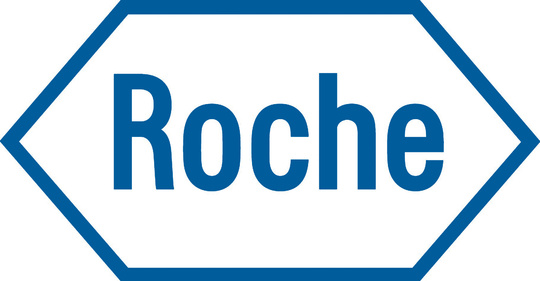



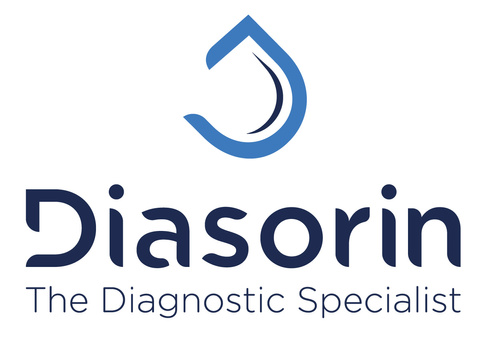

Exhibitors


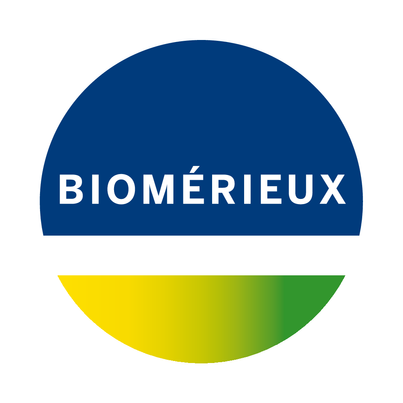
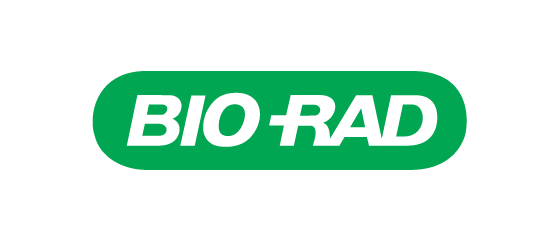

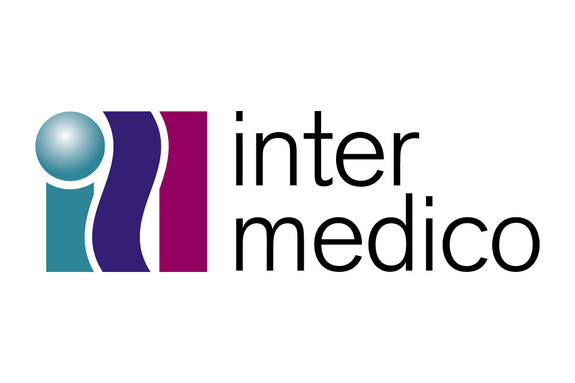






Thank You!
Day 1 Survey
Day 2 Survey
Any Questions?
Website
Email